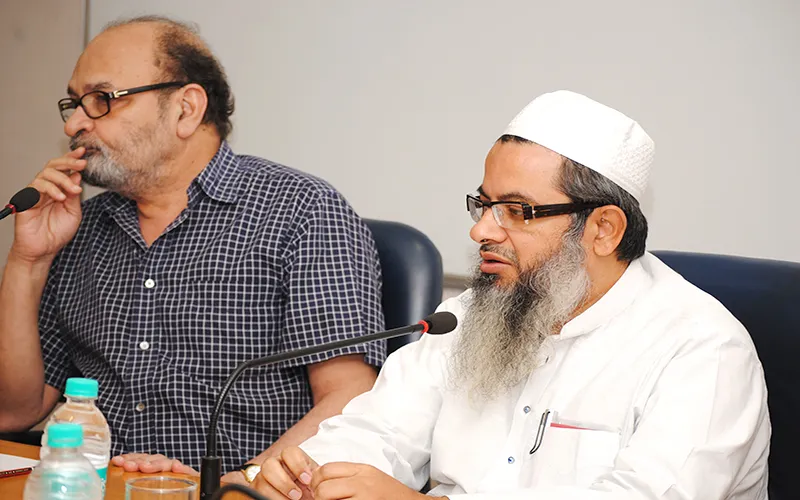-
CENTRES
Progammes & Centres
Location
During a discussion on the growth of militant groups in Pakistan and its effects on India, Jamiat-Ulama-i-Hind general secretary Maulana Mahmood Madani laid emphasis on retaining the ethos of Muslim Indians and warned against being co-opted and manipulated by foreign minds.

Observer Research Foundation organised a discussion on the growth of militant groups in Pakistan and its effects on India on May 28, 2012. Chaired by Mr. Saeed Naqvi, Distinguished Fellow, ORF, the discussion was initiated by Maulana Mahmood Madani, the General Secretary, Jamiat-Ulama-i-Hind, one of the oldest organisations predating the Indian independence struggle.
Maulana Madni described India’s Muslim population as the ’second largest majority’ community in the country and elucidated the nuances of the Shia, Sunni, Barelvi, and Deoband schools of thoughts. He also explained the manner in which they differ from their counterparts in Pakistan. He urged caution against the rise of sectarian conflict in the community. The Maulana highlighted the fact that Indian Muslims enjoy better living and employment conditions when compared with the rest of the subcontinent.
The Maulana laid emphasis on retaining the ethos of Muslim Indians and warned against the attempts of them being co-opted and manipulated by foreign minds.
The participants criticised the frequent visits of Wahhabi clerics who espouse intolerance to diversity and religious inclusion in public religious gatherings in India. It was suggested that the government should check attempts at indoctrination through the use of diplomacy.
The role the civil society in championing the cause of the Muslim community was mentioned in glowing terms. On the other hand, the discussants agreed that the media has not always played a constructive part in accurately portraying the identity and aspirations of the minority communities.
The growing influence of Jamaat ud Dawa (JuD) over similar organisations in Pakistan was also discussed. The participants emphasised the need to check the group’s goal of spreading its ideology into India by any means.
The participants also discussed different aspects of JuD activities such as state-support, funding and army supply, and on a broader note, the growing radicalisation and the inability of the state in Pakistan to implement stronger anti-terrorism laws. All agreed that a ’strong, stable, and peaceful’ Pakistan is in the best interests of India.
(This report is prepared by Swetangana Bhuyan, Research Intern at Observer Research Foundation)
The views expressed above belong to the author(s). ORF research and analyses now available on Telegram! Click here to access our curated content — blogs, longforms and interviews.